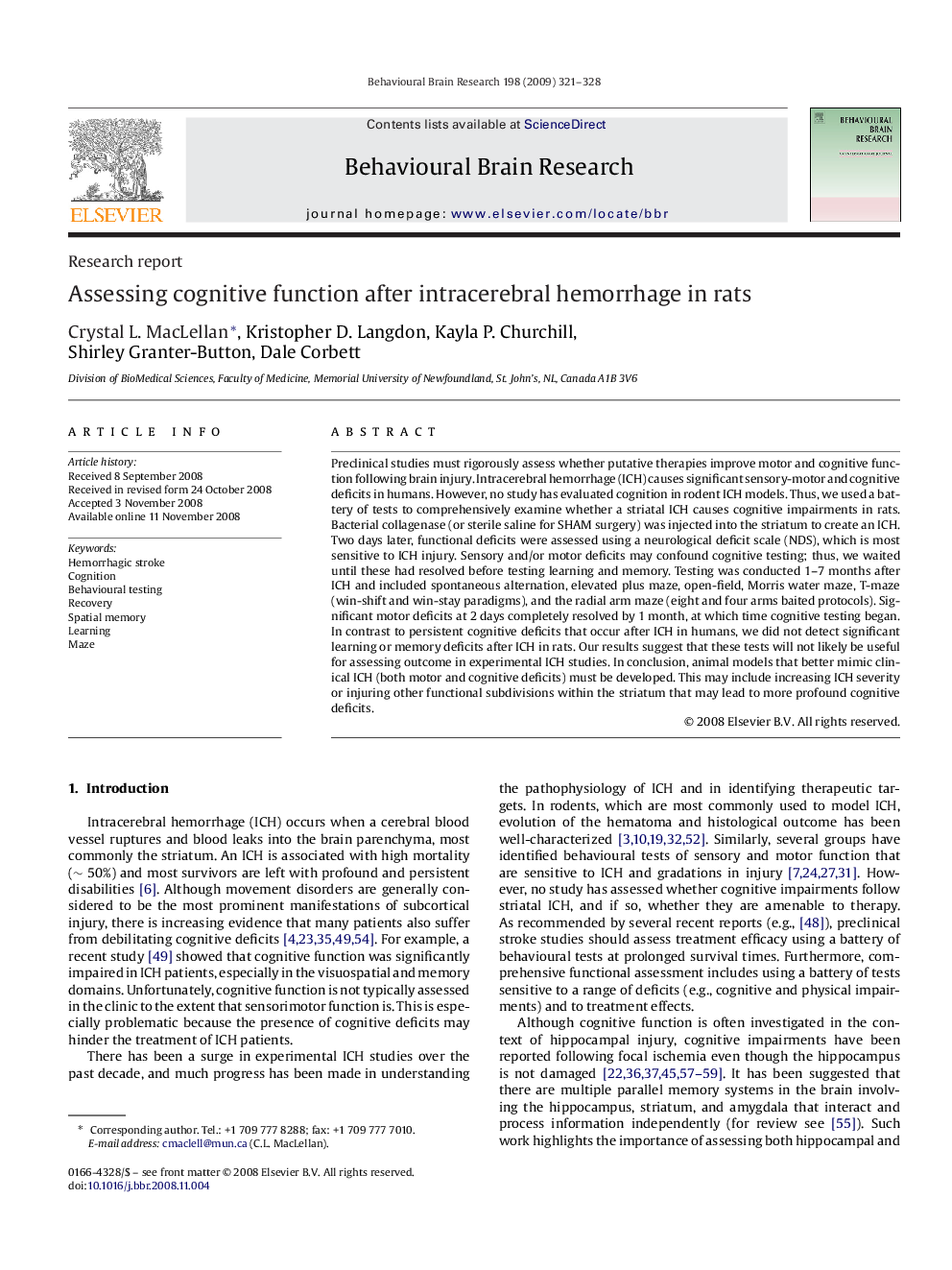| Article ID | Journal | Published Year | Pages | File Type |
|---|---|---|---|---|
| 4314943 | Behavioural Brain Research | 2009 | 8 Pages |
Preclinical studies must rigorously assess whether putative therapies improve motor and cognitive function following brain injury. Intracerebral hemorrhage (ICH) causes significant sensory-motor and cognitive deficits in humans. However, no study has evaluated cognition in rodent ICH models. Thus, we used a battery of tests to comprehensively examine whether a striatal ICH causes cognitive impairments in rats. Bacterial collagenase (or sterile saline for SHAM surgery) was injected into the striatum to create an ICH. Two days later, functional deficits were assessed using a neurological deficit scale (NDS), which is most sensitive to ICH injury. Sensory and/or motor deficits may confound cognitive testing; thus, we waited until these had resolved before testing learning and memory. Testing was conducted 1–7 months after ICH and included spontaneous alternation, elevated plus maze, open-field, Morris water maze, T-maze (win-shift and win-stay paradigms), and the radial arm maze (eight and four arms baited protocols). Significant motor deficits at 2 days completely resolved by 1 month, at which time cognitive testing began. In contrast to persistent cognitive deficits that occur after ICH in humans, we did not detect significant learning or memory deficits after ICH in rats. Our results suggest that these tests will not likely be useful for assessing outcome in experimental ICH studies. In conclusion, animal models that better mimic clinical ICH (both motor and cognitive deficits) must be developed. This may include increasing ICH severity or injuring other functional subdivisions within the striatum that may lead to more profound cognitive deficits.
